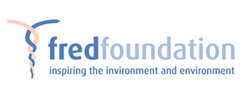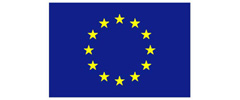Armenia: Water and Food threatened
Proposed plant hazardous to Lake Sevan and Ararat Valley
05.06.2009 |Euresia.net
“The proposed plant, to be situated about 10 kilometers away from [Lake] Sevan, would reportedly include a reservoir for cyanide and toxic chemicals and a dump for cyanide waste… Fresh hazards to Sevan could mean fresh damage to the Ararat Valley, which provides about 70 percent of Armenia’s fruit and vegetables and which takes needed irrigation waters from Sevan. "Armenia will cease to exist, if the lake is contaminated,"
Amenia, 3 june 2009 - Trying to find a balance between economic need and environmental responsibility
A Russian-owned mining company’s plan to build a gold-processing plant near Armenia’s legendary Lake Sevan has raised concerns about additional contamination of the lake, the source for 90 percent of Armenia’s fresh water supplies.
The proposed plant, to be situated about 10 kilometers away from Sevan, would reportedly include a reservoir for cyanide and toxic chemicals and a dump for cyanide waste. Environmentalists fear that the toxins could seep into underground water conduits and enter the 1,200-square-meter body of water, one of the world’s largest high-altitude lakes.
Fresh hazards to Sevan could mean fresh damage to the Ararat Valley, which provides about 70 percent of Armenia’s fruit and vegetables and which takes needed irrigation waters from Sevan. "Armenia will cease to exist, if the lake is contaminated," commented former environmental protection minister Karine Danielian. The National Academy of Sciences’ Lake Sevan Center stated that it has no information on the lake’s current level of contamination.
The GeoProMining Company, headquartered in Moscow, and with copper, gold and other mines in Armenia, Georgia and Russia, wants to build the processing plant at its Sotk gold mine, 10 kilometers from Sevan. Reducing transportation costs for ore processing is its reported goal. Currently, Sotk’s ore must be transported 263 kilometers south to another GeoProMining processing center.
In theory, environmentalists contend, the plan for a Sevan processing center should be a non-starter. Article 10 of Armenia’s 2001 Law on Lake Sevan bans the establishment of processing plants in the lake’s basin.
The government has not yet officially endorsed the project, but both the Ministry of Environmental Protection and the Ministry of Regional Management confirm that they have discussed the proposed processing center. Neither ministry, however, has yet received a written project proposal from GeoProMining, ministry representatives told EurasiaNet.
Both the environmental protection ministry and GeoProMining refused to discuss the project or to address potential risks highlighted by environmental activists. "As Minister Ara Harutiunian has said several times, we have not approved any project and all this panic is senseless," Deputy Environmental Protection Minister Simon Papian said.
GeoProMining displayed similar reticence on the issue. Vardan Vardanian, chairman of the board of directors of the company’s Armenian subsidiary, GeoProMining Gold, declined an interview request with EurasiaNet and later put an embargo on comments by a company spokesperson.
The company’s reluctance to discuss the project has only fired environmentalists’ criticisms.
Activists contend that the environmental protection ministry’s assurances of caution will carry little weight in the face of a December 2008 pledge from GeoProMining to invest $350 million into Armenia’s gold-mining sector between 2009 and 2011. Precious and non-ferrous metals are among Armenia’s top exports.
"They gave similar assurances regarding the [Armenian Copper Program’s] copper-molybdenum mine exploitation and the plant mine’s construction in Teghut," commented Inga Zarafian, chairperson of Yerevan’s Ecolur information center, in reference to the ministry. "They promised they would not allow the logging of 670 hectares of forest, but they approved the plan and we lost the best forests in Armenia." [For background see the Eurasia Insight archive].
Environmentalists had initially looked to the Law on Lake Sevan to stop GeoProMining’s plans. They now contend that parliament may soon amend the law - under government instruction - to clear legal hurdles for the gold-processing plant. Opposition Heritage Party members of parliament echo that view.
Khachik Harutiunian, chairperson of the National Assembly’s Committee for Agricultural and Environmental Protection Issues, however, told EurasiaNet that such amendments are not on parliament’s agenda.
For its part, GeoProMining maintains that it shares the concern for Lake Sevan’s environment. In an April 26 television interview with Yerkir Media TV, GeoProGold Board Chairman Vardanian stated that the company plans to use mining technologies that will eliminate the risk of environmental damage to Sevan. "We will refuse to exploit the mine and will stop work if there is the slightest [environmental] hazard," he said.
The former director of the Sevan National Park, however, argues that the area’s landslides and seismic activity may trump any such technologies. "No one can guarantee the [toxic waste] dump against an earthquake. The smallest crack is enough to have the toxins penetrate into underground water," said Gagik Sukhudian. Fears of potential shelling from nearby Azerbaijani army positions underline that danger, he added.
To identify potential environmental ramifications, GeoProMining has commissioned research by the National Academy of Sciences’ Institute of Hydro-Ecology and Ichthyology. The Academy declined to discuss the findings with EurasiaNet.
The amount of waste likely to be generated by the proposed gold-processing plant has not yet been defined, but former environmental protection minister Danielian estimates the total at 100 million tons over 10 years. GeoProMining representatives did not provide a figure. It remains uncertain whether GeoProMining-commissioned research can clarify the environmental-impact picture.
By Gayane Abrahamyan, reporter for ArmeniaNow.com in Yerevan.
Links:
Eurasia.net: http://www.eurasianet.org/departments/insightb/articles/eav060309a..shtml
Last year WECF sent a letter of concern to all Armenian embassies, you can read our article here.
Related News
Armenia Policy Dialogue on Agenda2030 - Women2030 Program, Yerevan, 18 June 2018
WECF and Armenian partners invited 30 Civil Society Organisations and Government representatives to prepare input for Agenda2030 UN top in July
02.07.2018
Introducing a new phenomenon in Armenia: Energy Cooperatives
WECF along with Belgian and European Energy Cooperatives explore possibilities of implementing sustainable energy in Armenia
11.10.2016
Highlights of CLEEN in 2015 – A review in pictures
After the launch of our CLEEN-Project in Georgia, Ukraine, Armenia and Moldavia in January 2015, our partner organizations have done a lot of activities to achieve their goals. Let us have a review about the present results
22.04.2016
WECF’s ‘CLEEN’-Project in the race for an EUSEW Award
CLEEN, an implementation and networking concept, with which CSOs and further important multipliers are trained and supported to expand their network in 4 project countries (Georgia, Armenia, Moldova, and Ukraine) in order to raise awareness and ensure citizen participation in energy efficiency and renewable energy
26.02.2016
“The Price of Electricity, Gas and Other Energy Sources is Rising Day by Day”
Sub-grant organization Yeghvard holds press conference on WECF’s energy project CLEEN
04.09.2015 | Carmen Chan





































